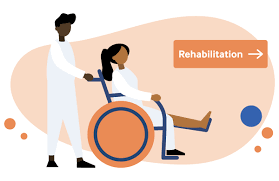Sydney, Australia – April 8, 2025 – A groundbreaking Australian study has established a direct causal link between persistent loneliness and a significantly increased risk of premature death among middle-aged women. The research, drawing on two decades of data, highlights loneliness as a critical public health issue requiring greater attention.
Published in the prestigious journal BMJ Medicine, the study analyzed extensive data from the Australian Longitudinal Study of Women’s Health, involving over 57,000 participants. Researchers from the University of Sydney, University of New South Wales, and Western Sydney University focused on women aged between 48 and 55 at the time data collection began.
The findings revealed a stark contrast: women who consistently reported feeling lonely over a 15-year period were three times more likely to die prematurely compared to those who did not report such feelings. Specifically, the study indicated that women without persistent loneliness had approximately a 5% risk of premature death, whereas this risk surged to 15% for those experiencing ongoing loneliness, as reported by Xinhua news agency based on the study’s findings released on April 7th.
“Loneliness is a risk factor that should be routinely assessed by healthcare professionals, in the same way we screen for conditions like high blood pressure or elevated cholesterol,” stated Neta HaGani, the study’s lead author. She stressed the importance of enhancing public understanding “to demystify and destigmatize this significant health concern.”
Professor Melody Ding from the University of Sydney, the study’s senior author, pointed out the unique pressures faced by women in midlife. This stage often involves juggling roles as primary caregivers for both children and elderly parents, alongside significant life events like menopause, retirement, or children leaving home, which can exacerbate social isolation.
The research also uncovered a dose-dependent relationship: the more frequently women reported feeling lonely, the higher their corresponding risk of early mortality became.
While this study provides crucial insights into the health impacts of loneliness on women, Professor Ding noted that comparable long-term data for men is currently limited. However, she suggested that the transitional nature of midlife might uniquely and adversely affect women’s social connectedness and subsequent health outcomes.
This research underscores the profound impact of social connection on physical health and longevity, urging healthcare systems and society to address loneliness as a serious health risk factor.
Disclaimer: This news article is based on findings from a specific research study focused on a particular demographic group (middle-aged Australian women). The information provided is for general knowledge and informational purposes only, and does not constitute medical advice. Individuals experiencing loneliness or concerned about their health should consult with a qualified healthcare professional for diagnosis and treatment.(https://www.daijiworld.com/news/newsDisplay?newsID=1276989)












